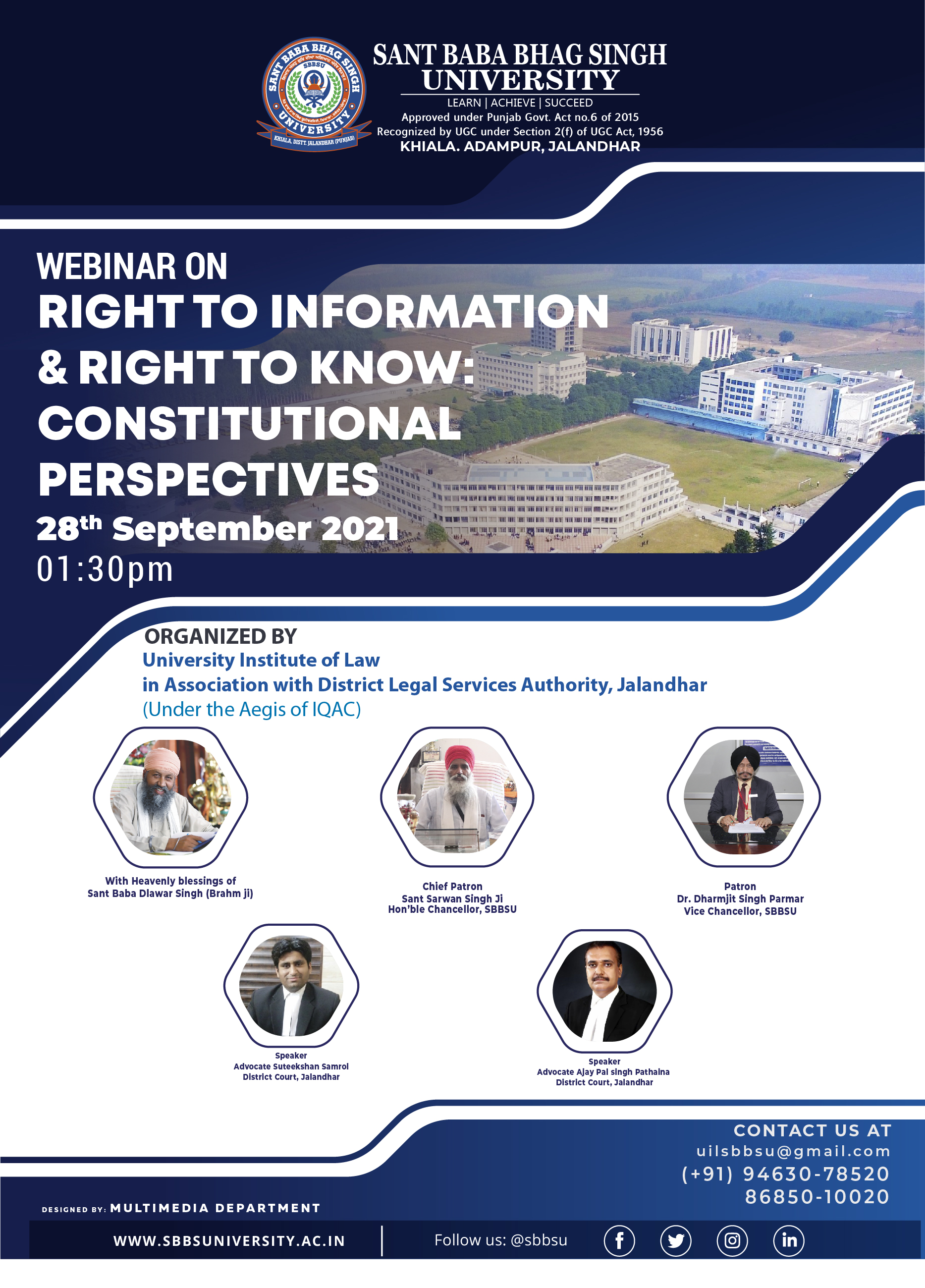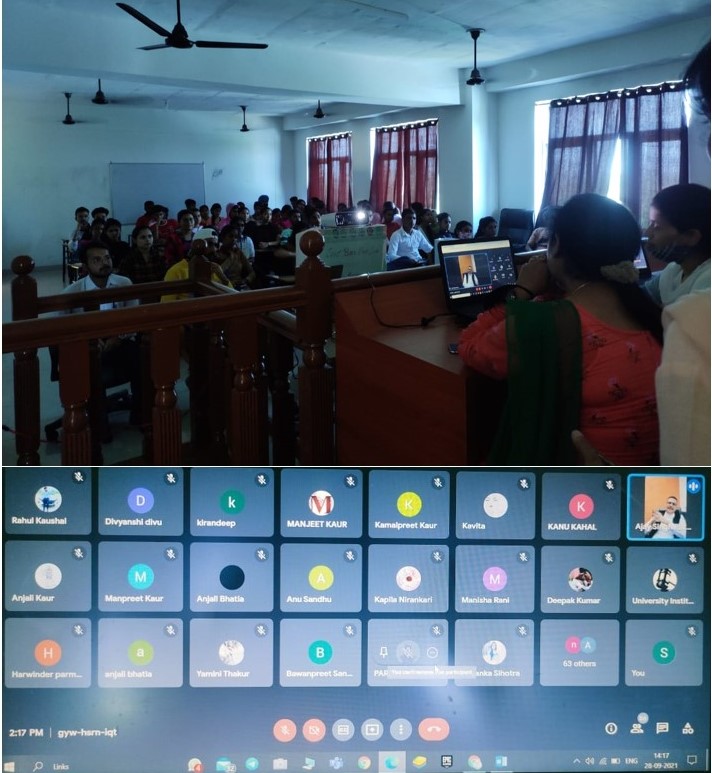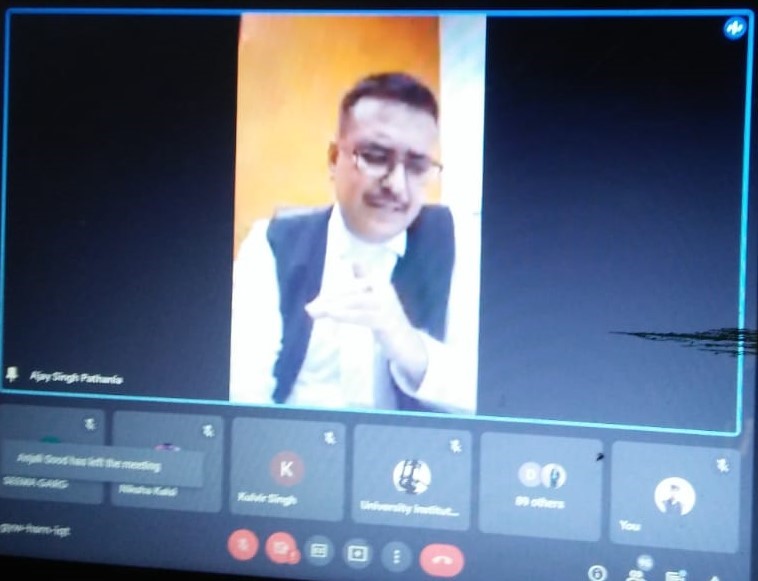Date: 28-09-2021
University Institute of Law organized a Webinar in association with District Legal Services Authority, Jalandhar on Right to Information & Right to know: Constitutional Perspectives on 28th of September, 2021, to celebrate Right to Know Day.
The first speaker of the webinar Mr. Ajay pal Singh Pathania, Advocate, Distt. Court Jalandhar commenced the session with a brief introduction to Right to Information and the law as it stands it. He spoke about the different facts of the RTI law. Mr. Pathania talked about the need for the government to enforce and strengthen the law on RTI, as part of their governmental functions and duty. With this, he sought to draw a correlation between who is at stake in the backdrop of the framework of RTI and who benefits from it. Setting the theme for the webinar, Mr. Pathania put forth a fundamental question on the applicability to the right to information during the on-going pandemic. Presently, the Indian government, as well as other governments around the world, is in possession of information relating to the health of their citizens. How far and to what extent can the government be obligated to share information, in this context, was a question that he posed to the participants. Emphasizing on the constitutional and statutory right to information that citizens enjoy, Mr. Pathania, advocated for the responsible and reasonable exercise of such a right. The right to information is an important right that attaches to itself a sense of duty.
The Second speaker of the webinar Mr. Suteekshan Samrol, Advocate, Distt. Courts Jalandhar, commenced his presentation by giving a brief outline of the Chapters of the RTI Act and their objectives. Under the RTI Act 2005, the information which can availed includes information relating to maintenance and status of Government homes, functioning of Government authorities, decisions taken by Government and any other relevant information which makes the Government accountable. The main objectives of RTI are: empowerment of citizens of India, providing information to all the citizens of India, supremacy of democratic ideals, transparency and accountability. Further, he described the persons who are eligible to seek information under the RTI Act. Section 3 of the Act provides that all citizens regardless of their age, gender or location within the territory of India are eligible to seek information under the Act. However, in the year 2018, the Central Government changed its stand and declared that now the NRIs can also file RTI applications. He also elaborated on the role and powers of public authorities. Section 2(h) of the RTI Act defines Public Authority. The role of PA is to designate PIOs and APIOs at each sub-divisional or sub-district level. The PIO can seek help from other officers and staff in discharging his duties. A person can apply to APIO, PIO, State Public Information Officer, State Information Commissioner and Central Information Commissioner to receive information. The hierarchy of appeals (in ascending order) includes the APIO/ PIO, the State Public Information Officer, the State Information Commission and the Central Information Commission.
Dr. Seema Garg Dean UIL thanked the participants for participating in the webinar and making the discussions interactive by posing pertinent questions to the resource persons.


